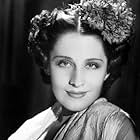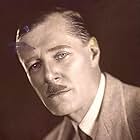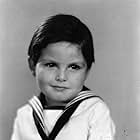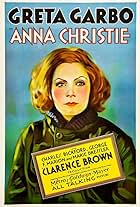A housewife divorces her self-centered husband. Years later, she attends a party where her ex is pursuing another woman. Unbeknownst to him, she is the same ex-wife he'd neglected, now trans... Read allA housewife divorces her self-centered husband. Years later, she attends a party where her ex is pursuing another woman. Unbeknownst to him, she is the same ex-wife he'd neglected, now transformed into a fashionable socialite.A housewife divorces her self-centered husband. Years later, she attends a party where her ex is pursuing another woman. Unbeknownst to him, she is the same ex-wife he'd neglected, now transformed into a fashionable socialite.
Rod La Rocque
- Bob Brown
- (as Rod LaRocque)
Tyrell Davis
- Wallace
- (as Tyrrell Davis)
William H. O'Brien
- Struthers
- (as William O'Brien)
Freddie Burke Frederick
- Bobby Brown - 8 Years Old
- (uncredited)
Mary Gordon
- Mrs. McIntyre
- (uncredited)
Marilyn Harris
- The Brown's Little Girl
- (uncredited)
Helene Millard
- Helen Hibbard
- (uncredited)
Dickie Moore
- Bobby Brown - 5 Years Old
- (uncredited)
- Director
- Writers
- All cast & crew
- Production, box office & more at IMDbPro
Storyline
Did you know
- TriviaAt the time of its release, this film features the next two actresses to win Best Actress at the Academy Awards, Norma Shearer would win at the ceremony later that year for The Divorcee (1930), and Marie Dressler the year after for Min and Bill (1930).
- GoofsNear the end of the film, just after the children depart with Boucci and their nurse, a shadow of the boom microphone falls across a column to the right of the scene.
- Quotes
Mrs. Katherine Brown: For Heaven's sake, let's be gay about this!
- ConnectionsAlternate-language version of Soyons gais (1930)
- SoundtracksOh Where Oh Where Has My Little Dog Gone
(1864) (uncredited)
Written by Septimus Winner
Sung a cappella by Rod La Rocque with modified lyrics
Featured review
"Let Us Be Gay" is an early sound picture of comedy, romance and drama. Its production quality shows the strains of the first couple of years of the studios, even the big ones like MGM, in adapting to sound and other technical improvements in movies. For instance, there isn't much free movement and discussion among the cast in the few different settings. The confined speaking spaces were due to the stationary microphones. This film can serve as a good study in following the changes in movie technology and methods.
Norma Shearer was pregnant when this film was made, so MGM hurried its shooting - completing it in less than a month. The story is based on a play by American playwright Rachel Crothers. In places, it is melodrama, and in some others, it's silly or sappy. It's a classic use of innuendo regarding morals and loose living. And, it's a picture of marriage, infidelity and tested love. The setting for all of this is in the upper crust of society. One wonders how audiences received this film in the first year of the Great Depression.
The film has much humor - biting in places. The cynicism contributes to some hilarious scenes in which the players crack up among themselves. Those seem to be impromptu and authentic, and one wonders if they didn't happen that way on the set and the director decided to keep them instead of reshooting scenes. They give a sense of reality as something that happens among people in regular life, but that one seldom sees in scripted movies.
Most of the cast do well with one exception. Rod La Rocque is very wooden as Bob Brown. His voice especially seems to be that of a monotone robot. This is so obvious as to be nagging and distracting from any sincerity on his part. This is an instance when one role so affects the whole film negatively. La Rocque looked the part but just didn't or couldn't play it. Any number of other actors of the day would have been suited for that role.
Norma Shearer is Kitty Brown, whose makeup transformation is quite remarkable. Marie Dressler is Mrs. Bouccicault - Bouccy (pronounced, "Boo-see") as Kitty and others call her by nickname. She and Kitty dominate most of the scenes they are in together. Dressler truly was one of the greats of early cinema. Gilbert Emery is superb as Towney Townley, a carefree wealthy middle-aged bachelor who is smitten with Kitty. Hedda Hopper is a hoot as the very exaggerated stuffy and snobbish Madge Livingston. And, Tryrell Davis is very good and funny as the cowering Wallace Granger. Even the main butler and maid contribute to the humor in this film. The rest of the cast are fine
The best part of the film is the witty and cynical comedy in exchanges between Kitty and others, especially Bouccy and Towney. The plot is unique and good, and it has a different but nice ending for a Hollywood production even then. It reflects the undertone of true love, not just romance between a couple.
Here are some favorite lines from the film. For more witty and other dialog, see the Quotes section under this IMDb Web page of the movie.
Mrs. Bouccicault, "Towney, this is Mrs. Cortland-Brown. She's not as sweet as she looks. But, you'll think she is." Towney Townley, "How do you do. I am nicer than I look - much." Kitty Brown, "How could you be?"
Kitty Brown, "How do you do. Oh, you magnificent long-legged Britisher. I've been avoiding you in Paris. But you are wonderful, aren't you?" Towney Townley, "Yes, yes, we, we are, aren't we?" Kitty Brown, "I thought you said he was 'umble." Mrs. Bouccicault, "Hmm, hmm. This isn't the one." Kitty Brown, "Oh! You mean to say I have to say that all over again? Because that's the way I'm gonna begin."
Towney Townley, "Uh, begin what?" Kitty Brown, "Well, you see, uh, Bouccy has a certainly laid plan whereby I have to get a man. Now, would, uh, would that get you?" Towney Townley, "I don't remember what you said, but you have got me." Kitty Brown, "Oh, I like this one. Bouccy, make it this one." Bouccy, "All right, practice on him." Towney, "She doesn't seem to need practice."
Kitty Brown, "You must be a very smart person." Towney Townley, "You found me out."
Kitty Brown, starting a bridge game, "Who's going to pay my losses?" Towney Townley, "I shall be delighted. I love to have beautiful women under obligation to me."
Mrs. Bouccicault, "When you quote me, make it agreeable." Kitty Brown, "No one would believe you said it, lamb." Towney Townley, "One on you, my pet."
Mrs. Bouccicault, while a group is singing around Kitty at the piano, "Towney, is that you making that particularly bad noise?" Towney Townley, "No. I'm making the tenor." Bouccy, "Well, stop it." Kitty Brown, "Don't stop. You make the rest of us sound so good."
Towney Townley, "Kitty, you have the prettiest ears I ever saw. I wanted to kiss the right one all through dinner, especially with the salad." Whitman - 1st Butler, "Oh, Perkins. Mrs. Brown is leaving on the 11 o'clock train. It might be as well for you to assist her." Perkins, "That's just where I'm going, and without any suggestions from you."
Norma Shearer was pregnant when this film was made, so MGM hurried its shooting - completing it in less than a month. The story is based on a play by American playwright Rachel Crothers. In places, it is melodrama, and in some others, it's silly or sappy. It's a classic use of innuendo regarding morals and loose living. And, it's a picture of marriage, infidelity and tested love. The setting for all of this is in the upper crust of society. One wonders how audiences received this film in the first year of the Great Depression.
The film has much humor - biting in places. The cynicism contributes to some hilarious scenes in which the players crack up among themselves. Those seem to be impromptu and authentic, and one wonders if they didn't happen that way on the set and the director decided to keep them instead of reshooting scenes. They give a sense of reality as something that happens among people in regular life, but that one seldom sees in scripted movies.
Most of the cast do well with one exception. Rod La Rocque is very wooden as Bob Brown. His voice especially seems to be that of a monotone robot. This is so obvious as to be nagging and distracting from any sincerity on his part. This is an instance when one role so affects the whole film negatively. La Rocque looked the part but just didn't or couldn't play it. Any number of other actors of the day would have been suited for that role.
Norma Shearer is Kitty Brown, whose makeup transformation is quite remarkable. Marie Dressler is Mrs. Bouccicault - Bouccy (pronounced, "Boo-see") as Kitty and others call her by nickname. She and Kitty dominate most of the scenes they are in together. Dressler truly was one of the greats of early cinema. Gilbert Emery is superb as Towney Townley, a carefree wealthy middle-aged bachelor who is smitten with Kitty. Hedda Hopper is a hoot as the very exaggerated stuffy and snobbish Madge Livingston. And, Tryrell Davis is very good and funny as the cowering Wallace Granger. Even the main butler and maid contribute to the humor in this film. The rest of the cast are fine
The best part of the film is the witty and cynical comedy in exchanges between Kitty and others, especially Bouccy and Towney. The plot is unique and good, and it has a different but nice ending for a Hollywood production even then. It reflects the undertone of true love, not just romance between a couple.
Here are some favorite lines from the film. For more witty and other dialog, see the Quotes section under this IMDb Web page of the movie.
Mrs. Bouccicault, "Towney, this is Mrs. Cortland-Brown. She's not as sweet as she looks. But, you'll think she is." Towney Townley, "How do you do. I am nicer than I look - much." Kitty Brown, "How could you be?"
Kitty Brown, "How do you do. Oh, you magnificent long-legged Britisher. I've been avoiding you in Paris. But you are wonderful, aren't you?" Towney Townley, "Yes, yes, we, we are, aren't we?" Kitty Brown, "I thought you said he was 'umble." Mrs. Bouccicault, "Hmm, hmm. This isn't the one." Kitty Brown, "Oh! You mean to say I have to say that all over again? Because that's the way I'm gonna begin."
Towney Townley, "Uh, begin what?" Kitty Brown, "Well, you see, uh, Bouccy has a certainly laid plan whereby I have to get a man. Now, would, uh, would that get you?" Towney Townley, "I don't remember what you said, but you have got me." Kitty Brown, "Oh, I like this one. Bouccy, make it this one." Bouccy, "All right, practice on him." Towney, "She doesn't seem to need practice."
Kitty Brown, "You must be a very smart person." Towney Townley, "You found me out."
Kitty Brown, starting a bridge game, "Who's going to pay my losses?" Towney Townley, "I shall be delighted. I love to have beautiful women under obligation to me."
Mrs. Bouccicault, "When you quote me, make it agreeable." Kitty Brown, "No one would believe you said it, lamb." Towney Townley, "One on you, my pet."
Mrs. Bouccicault, while a group is singing around Kitty at the piano, "Towney, is that you making that particularly bad noise?" Towney Townley, "No. I'm making the tenor." Bouccy, "Well, stop it." Kitty Brown, "Don't stop. You make the rest of us sound so good."
Towney Townley, "Kitty, you have the prettiest ears I ever saw. I wanted to kiss the right one all through dinner, especially with the salad." Whitman - 1st Butler, "Oh, Perkins. Mrs. Brown is leaving on the 11 o'clock train. It might be as well for you to assist her." Perkins, "That's just where I'm going, and without any suggestions from you."
- How long is Let Us Be Gay?Powered by Alexa
Details
- Release date
- Country of origin
- Language
- Also known as
- Konsten att behålla en man
- Filming locations
- Production company
- See more company credits at IMDbPro
- Runtime1 hour 19 minutes
- Color
Contribute to this page
Suggest an edit or add missing content


































